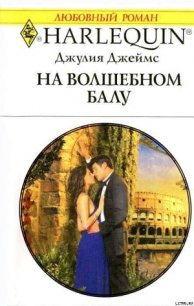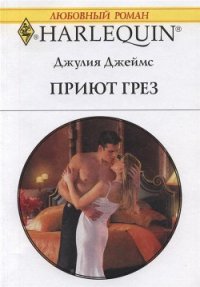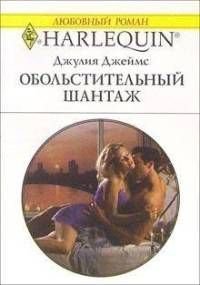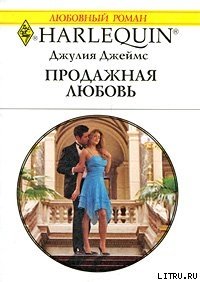Julia Ward Howe - Richards Laura E. (бесплатная регистрация книга TXT) 📗
Her first work under this new impulse was for peace. The Franco-Prussian War of 1870 made a deep and painful impression upon her. She had felt a bitter dislike for Louis Napoleon ever since the day when he "stabbed France in her sleep" by the Coup d'Etat of December, 1851; but she loved France and the French people; the overwhelming defeat, the bitter humiliation suffered by them filled her with sorrow and indignation. In a lecture on Paris she says: "The great Exposition of 1867 had drawn together an immense crowd from all parts of the world. Among its marvels, my recollection dwells most upon the gallery of French paintings, in which I stood more than once before a full-length portrait of the then Emperor.[70] I looked into the face which seemed to say: 'I have succeeded. What has any one to say about it?' And I pondered the slow movements of that heavenly Justice whose infallible decrees are not to be evaded."
Her "Reminiscences" say: "As I was revolving these matters in my mind, while the war was still in progress, I was visited by a sudden feeling of the cruel and unnecessary character of the contest. It seemed to me a return to barbarism, the issue having been one which might easily have been settled without bloodshed. The question forced itself upon me, 'Why do not the mothers of mankind interfere in these matters, to prevent the waste of that human life of which they alone bear and know the cost?' I had never thought of this before. The august dignity of motherhood and its terrible responsibilities now appeared to me in a new aspect, and I could think of no better way of expressing my sense of these than that of sending forth an appeal to womanhood throughout the world, which I then and there composed."
This appeal is dated Boston, September, 1870.
APPEAL TO WOMANHOOD THROUGHOUT THE WORLD
Again, in the sight of the Christian world, have the skill and power of two great nations exhausted themselves in mutual murder. Again have the sacred questions of international justice been committed to the fatal mediation of military weapons. In this day of progress, in this century of light, the ambition of rulers has been allowed to barter the dear interests of domestic life for the bloody exchanges of the battle-field. Thus men have done. Thus men will do. But women need no longer be made a party to proceedings which fill the globe with grief and horror. Despite the assumptions of physical force, the mother has a sacred and commanding word to say to the sons who owe their life to her suffering. That word should now be heard, and answered to as never before.
Arise, then, Christian women of this day! Arise, all women who have hearts, whether your baptism be that of water or of tears! Say firmly: "We will not have great questions decided by irrelevant agencies. Our husbands shall not come to us, reeking with carnage, for caresses and applause. Our sons shall not be taken from us to unlearn all that we have been able to teach them of charity, mercy and patience. We, women of one country, will be too tender of those of another country, to allow our sons to be trained to injure theirs." From the bosom of the devastated earth a voice goes up with our own. It says: "Disarm, disarm! The sword of murder is not the balance of justice." Blood does not wipe out dishonor, nor violence indicate possession. As men have often forsaken the plough and the anvil at the summons of war, let women now leave all that may be left of home for a great and earnest day of counsel.
Let them meet first, as women, to bewail and commemorate the dead. Let them then solemnly take counsel with each other as to the means whereby the great human family can live in peace, man as the brother of man, each bearing after his own kind the sacred impress, not of C?sar, but of God.
In the name of womanhood and of humanity, I earnestly ask that a general congress of women, without limit of nationality, may be appointed and held at some place deemed most convenient, and at the earliest period consistent with its objects, to promote the alliance of the different nationalities, the amicable settlement of international questions, the great and general interests of peace.
The appeal was translated into French, Spanish, Italian, German, and Swedish, and sent broadcast far and wide.
In October our mother wrote to Aaron Powell, president of the American Peace Society: "The issue is one which will unite virtually the whole sex. God gave us, I think, the word to say, but it ought to be followed by immediate and organizing action.... Now, you, my dear sir, are bound, as a Friend and as an Advocate of Peace, to take especial interest in this matter, so I call upon you a little confidently, hoping that you will help my unbusinesslike and unskilful hands to go on with this good work. I wish to avoid occasioning any confusion in the different meetings and organizations of the Woman Suffrage Movement. But I should wish to move for various meetings in which the matter of my appeal, the direct intervention of Woman in the Pacification of the World, should be discussed, and the final move of a general Congress promoted. Please take hold a little now and help me. I have wings but no feet nor hands—rather, only a voice, 'vox et praeterea nihil.'"
The next step was to call together those persons supposedly interested in such a movement. In December, 1870, it was announced that a meeting "for the purpose of considering and arranging the steps necessary to be taken for calling a World's Congress of Women in behalf of International Peace" would be held in Union League Hall, Madison Avenue and Twenty-sixth Street, New York, on Friday, December 23. The announcement, which sets forth the need for and objects of such a congress, is signed by Julia Ward Howe, William Cullen Bryant, and Mary F. Davis.
The meeting was an important one: there were addresses by Lucretia Mott, Octavius Frothingham, and Alfred Love, the Peace prophet of Philadelphia; letters from John Stuart Mill, Harriet Beecher Stowe, and William Howard Furness, who adjures peace-lovers to "labor for the establishment of a Supreme Court to which all differences between nations shall be referred for settlement."
Mrs. Howe made the opening address, from which we quote these words:—
"So I repeat my call and cry to women. Let it pierce through dirt and rags—let it pierce through velvet and cashmere. It is the call of humanity. It says: 'Help others, and you help yourselves.'"
"Let the woman seize and bear about the prophetic word of the hour, and that word becomes flesh, and dwells among men. This rapturous task of hope, this perpetual evangel of good news, is the woman's special business, if she only knew it.
"Patience and passivity are sometimes in place for women—not always. I think of this when I go to women, intelligent and charming, who warn me off with white hands, unaccustomed to any graver labor than that of gesticulation. 'Don't ask me to work,' they say; 'I cannot do it. God always raises up a set of people to do these things, like the Anti-Slavery people, and they set to work to do them.' And then I want to say to these friends: 'God can raise you up too, and I hope He will.'
"As for what one can or cannot do, remember that, active or passive, we must work to live. If we have not real labor, we must have simulated exercise. If we have not real objects, we must have fanciful caprices, little less exertion than keeps us in the padded chair would take us out of it, and send us to try whether nature has made any special exemption in our cases, and whether the paralysis of our life need be traced further outward than our self-centred heart....
"Would that I were still young, as are many of you; would at least that I had followed the angel of my youth as gravely and steadfastly as he invited me; but the world taught, applauded in another direction, and I was at fault. But from this assembly a will might go forth, an earnest will, quick with love, and heavy with meaning. And this will might say to our sisters all over the world, 'Trifle no more.' If women did not waste life in frivolity, men would not waste it in murder. For the tenderness of the one class is set by God to restrain the violence of the other."




